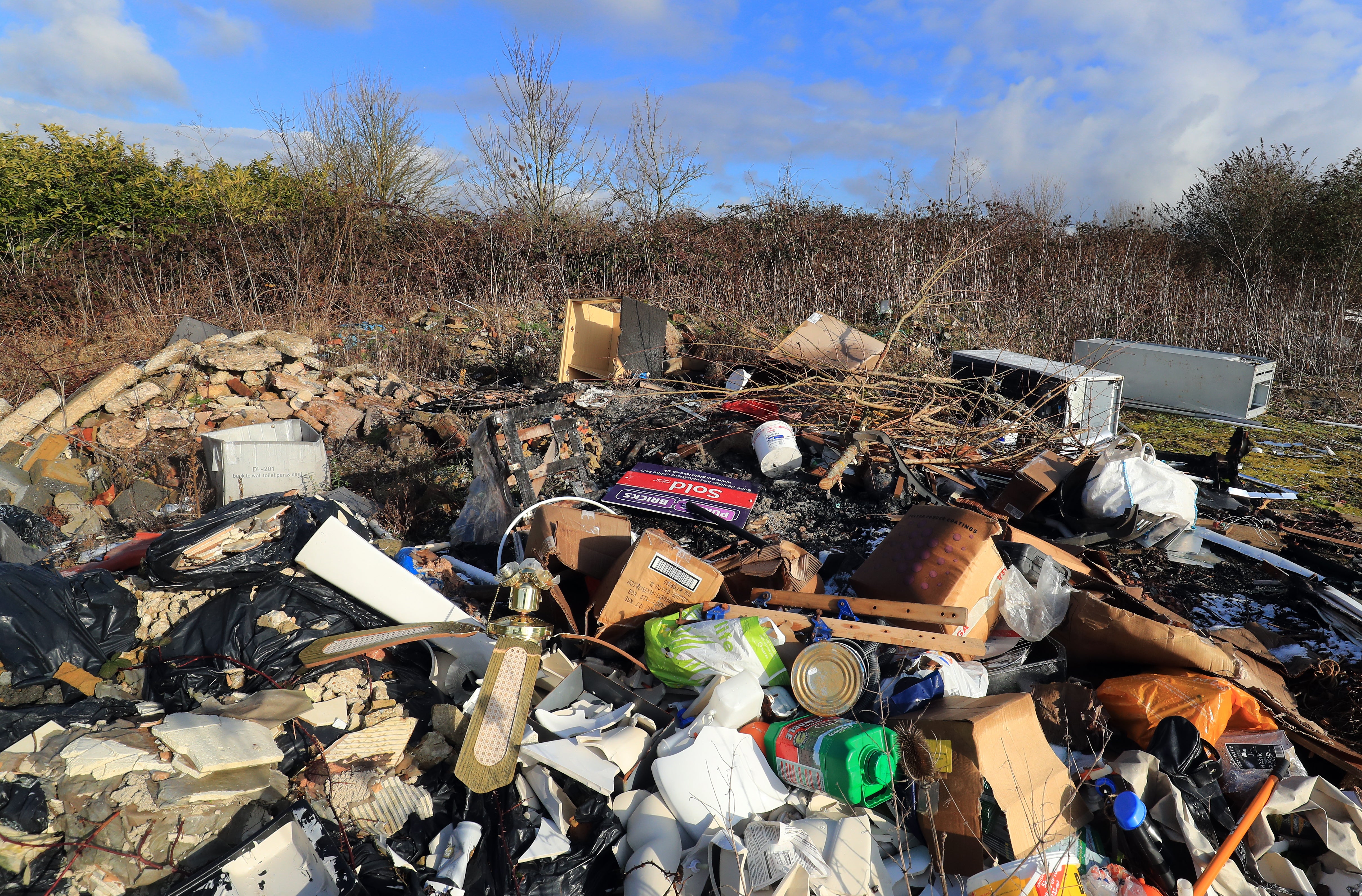Fly-tipping surged by 16% during pandemic – but fines fell by half
The biggest problem is in London, as Furvah Shah explains


Cases of fly-tipping reached 1.13 million across England last year in a surge of over 16 per cent during the pandemic, costing local governments £11.6 million to clean up.
New government figures show how lockdown caused an increase in fly-tipping across the country in 2020/2021, with cases increasing from 980,000 the previous year.
But the statistics also show how the amount of fixed penalty notices dropped by 24 per cent, and court fines fell by over half.
London had the most incidents, with 43 per 1,000 people, following by the northeast at 31. The southwest was considered the cleanest location with 10 cases per 1,000 people.
The contents of the majority of dumped rubbish contained household waste – accounting for 65 per cent of incidents – and debris was most commonly dumped on pavements and roads.
Despite the rise in cases, penalties and court fines dropped in number as did the value of the fines, which decreased to £440,000 from £1.2 million last year.
The government said the figures covered the first coronavirus lockdown in March 2020, and the increase could be down to fewer rubbish collections and the closure of waste recycling centres.
Staff shortages and changes to household activities could also have driven the increase.
In 2020, the Countryside Alliance reported a a 300% rise in fly-tipping in some areas and blamed households using the first lockdown to have a "clear-out of homes and gardens" and dumping the resulting rubbish illegally.
During the first lockdown, many councils shut or reduced the opening hours of waste recycling centres to concentrate on kerbside collections.
The Country Land and Business Association (CLA), which represents rural businesses in England and Wales, said the “vast majority” of fly-tipping happens on private land, so government statistics may not represent the true scale of the issue.
Mark Tufnell, president of the CLA, said: “These figures do not tell the full story of this disgraceful behaviour, which blights our beautiful countryside.
“Local authorities tend not to get involved with clearing incidences of fly-tipped waste from private land, leaving the landowner to clean up and foot what is often an extortionate bill.”
He continued: “Fly-tipping continues to wreck the lives of many of us living and working in the countryside – and significant progress needs to be made to stop it.”
Keep Britain Tidy, a leading environmental charity, have renewed their call for action following the figures.
The charity’s executive chief, Allison Ogden-Newton OBE said: “We fully expected the fly-tipping figures to rise significantly this year due to a combination of factors caused by the pandemic and last year’s spring lockdown.
“These figures are still incredibly disappointing and we, as a country, need to do more to educate the public about how to get rid of unwanted stuff safely and legally.”
She added: “If the pandemic has taught us one thing, it is that the environment on our doorstep is vitally important to us all and needs our protection. Those who would abuse it for their own ends should face the full force of the law.
“There is no doubt that it has been an extraordinary 18 months, but as we move forward and think about ‘building back greener’ we must surely start with protecting our environment from this vandalism. If we can’t do that, then what hope is there for tackling the global challenges that we face?”






Join our commenting forum
Join thought-provoking conversations, follow other Independent readers and see their replies
Comments